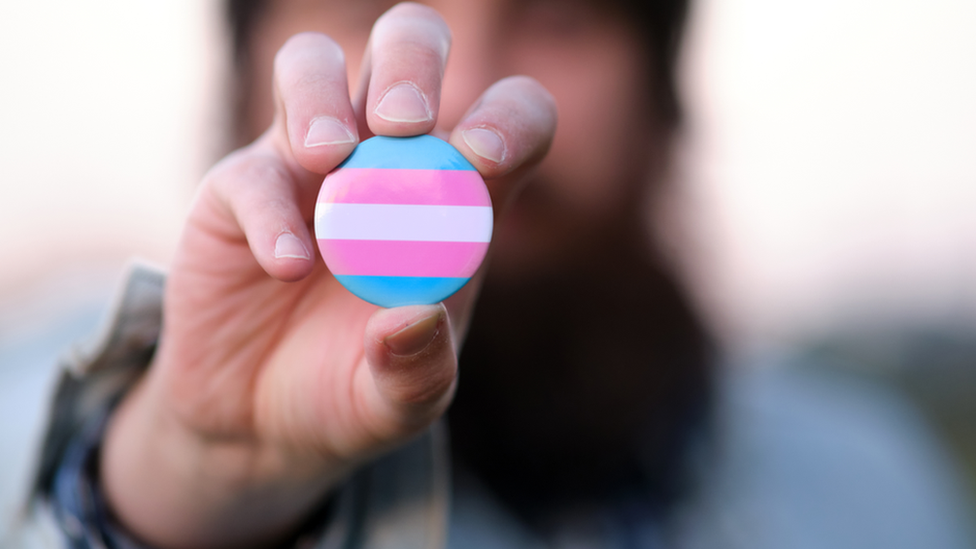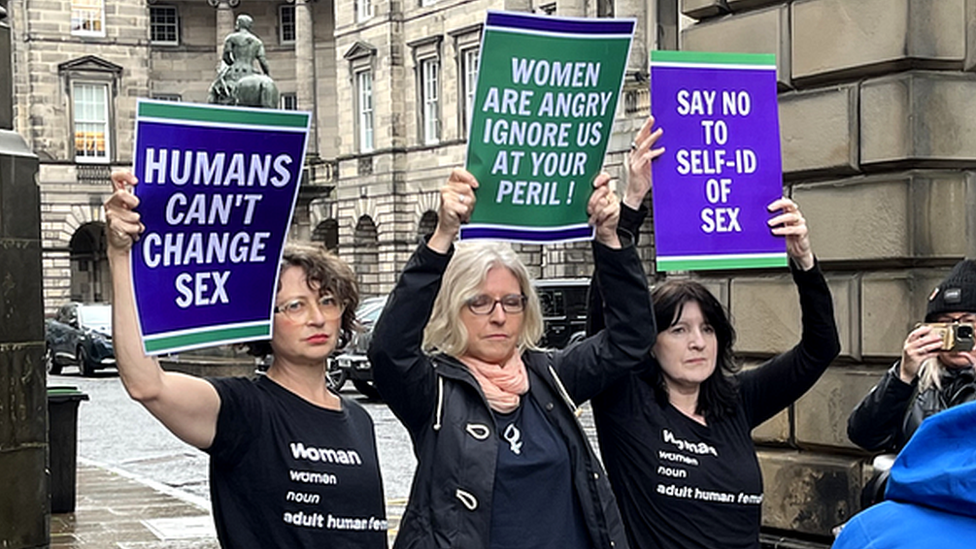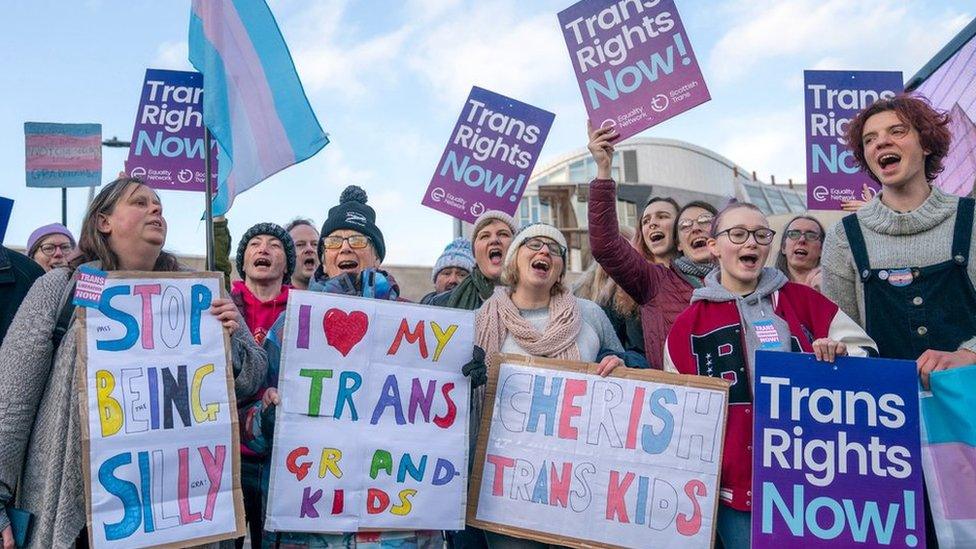Trans women could be counted as women in Senedd elections
- Published

Transgender women could be counted as women under plans for future gender-equal Senedd elections.
Welsh Labour and Plaid Cymru want to make political parties draw up equal lists of men and women candidates.
Draft legislation, leaked by a campaign group, suggests the lists of women could include candidates who are planning gender reassignment.
A Welsh government spokesperson said the bill has since changed.
But government spokespeople would not be drawn on what had been altered.
The Women's Rights Network (WRN), which obtained the early legislation, accused the Welsh government of using the law to "embed a toxic and misogynistic ideology".
WRN has campaigned against gender self-identification and against trans women being allowed into women's single sex spaces.
But LGBTQ+ rights group Stonewall Cymru accused WRN of perpetuating "a negative narrative against the trans community".
The legislation, set to be published later this year, is all part of plans to expand the Senedd with 36 more politicians.
Under the new system, planned to take effect at the next Senedd election in 2026, voters would pick parties rather than individual candidates with politicians elected from lists.
The Welsh government, with support of Plaid Cymru, want to change the law so parties draw up equal lists of men and women for election.
There are claims that the Senedd does not have the power to enforce the quotas and because of concerns they could be challenged in the courts, the plans for a gender equality election law have been separated from the rest of the Senedd reforms.
A section of the draft gender quotas bill text makes clear that for the purpose of the new legislation, a "'woman' includes a transgender woman".
It says the term "'transgender woman' means a person who is proposing to undergo, is undergoing or has undergone a process (or part of a process) for the purpose of reassigning [the person's] sex to female by changing physiological or other attributes of sex".
The law adds that Welsh ministers may amend the section through regulations in future, for "the purpose of changing the definition of woman".
Concern and support
Cathy Larkman from the Women's Rights Network Wales said: "It is astonishing that the government is spending public funds and using a gender quotas bill to promote an agenda which undermines the rights of half the population of Wales.
"It is shameful that they are high-jacking legislation that should benefit women and increase female participation in political life, to embed a toxic and misogynistic ideology."
"The government does not have the legal powers to push this through and are highly likely to fail when it is challenged in the courts, as it will be."
Dr Lisa Cordery-Bruce, trustee of Pride Cymru, said: "Trans women are women. Trans women have a right to stand for election as their authentic selves."
"There has never been an openly-transgender person elected to our national parliament and it is a glass ceiling that needs smashing," she said, adding that the language in the draft bill is "is consistent with the Equality Act 2010 and on this basis, it should proceed".
A spokesperson for Stonewall Cymru said the organisation had not seen the draft bill "but we fully support any measure to empower all women, including trans women, to take part in politics and seek election in the Senedd".
"Trans women make up 0.1% of the population in Wales. However, it is important that legislation such as this is inclusive of trans people and of other minority groups to ensure that our communities are all reflected within the Senedd.
"It is unfortunate and concerning to see a draft bill intended to uplift women be leaked and mischaracterised to further perpetuate a negative narrative against the trans community," the group said, adding hate for trans people is at an "all-time high".
First Minister Mark Drakeford has previously been supportive of Scotland's plans for a gender-self-identification system.
No powers exist in Cardiff to pass such legislation - the first minister's government has said it would ask for the powers needed so it could set up its own self-ID system.
The UK government blocked the Scottish gender-ID plans, which the Scottish government is attempting to overturn in the courts.
UK government Welsh Secretary David TC Davies said on X, formerly known as Twitter, that he was "concerned about this proposal and have met with women's rights groups recently to discuss their views."
"One of my gravest fears is that the plan could have a detrimental impact on women's rights across our country."
It is expected that the legislation will be tabled in the Senedd later in the year. The rest of the plans, including reforming how the Senedd is elected, have already been published and are moving through the parliament.
A Welsh government spokesperson said: "We are working to introduce a bill to make our parliament more representative of the people it serves, which includes provisions to introduce candidate quotas for people seeking election to the Senedd.
"Our proposed model for quotas is designed to maximise the chances of achieving a Senedd comprised of at least 50% women.
"Work is ongoing on the bill."
Related topics
- Published10 January 2023

- Published19 September 2023

- Published8 December 2023
